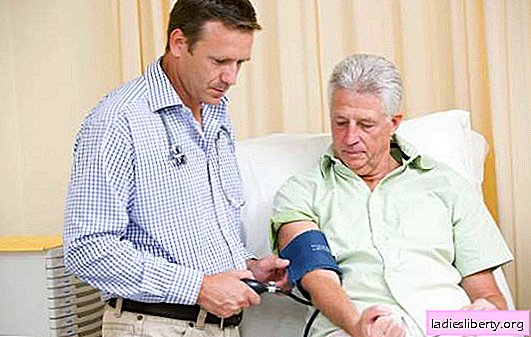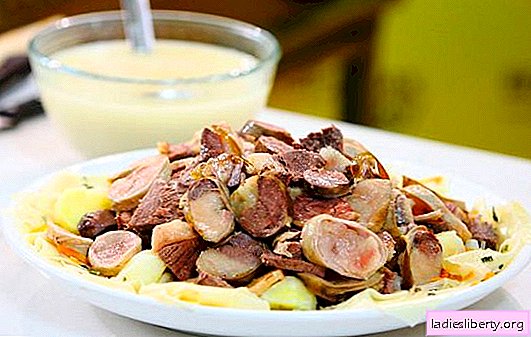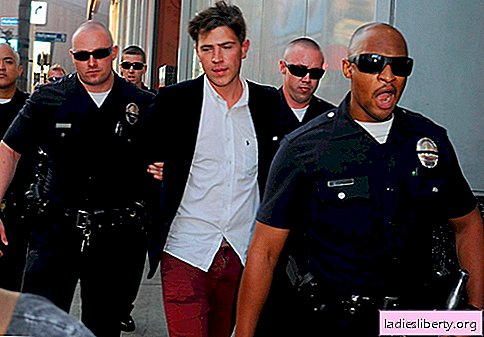
Pain is an alarming symptom that indicates a pathology that needs to be identified and treated immediately.
If cheekbones hurt, there are so many causes of such pain that only a doctor can identify the specific in each case and prescribe treatment.
Cheeks hurt - reasons
For successful treatment, you must immediately determine what causes pain in the cheekbones. It is important to consider:
• localization - pain can bother near the nose, in the temple, to the ear, be one-sided or on both sides;
• the nature of the pain and its severity - can be dull and aching, paroxysmal, cutting;
• other complaints or symptoms present.
If cheekbones hurt, the causes that cause these painful sensations can be combined into several groups.
1. The inflammatory process in the jaw joint.
The pain has a characteristic localization: it bothers in the ear region, where the temporomandibular joint is located. The pain, mainly aching, may feel a crunch in the ear during joint movements (when chewing, yawning, opening the mouth or closing the jaws). The intensity of the pain is constantly changing from minor discomfort to sharp pain. The clinical picture strongly resembles otitis media, therefore, if such pain occurs, you should immediately consult a doctor.
2. Diseases of the teeth.
If cheekbones hurt, the cause may be dental disease. Such pains can be caused by pulpitis, caries, periodontitis, osteomyelitis, gum disease, and tooth injuries. Clinical manifestations are expressed, have some specifics:
• pain intensifies when chewing solid and rough food;
• have a pulsating character and pronounced intensity;
• with osteomyelitis, edema and hyperemia of the face appear, the temperature rises, the pain becomes unbearable.
3. Neuralgia.
If cheekbones hurt, the causes of pain can be neuralgia of the auricular nerve node or larynx and branches of the facial nerves. This is manifested by the following symptoms:
• intense pain when moving the jaw;
• increased salivation may occur;
• clicks and noises in the ear.
4. Migraine - pain in one half of the head with radiation to the cheekbone.
5. Inflammation of the facial artery - arteritis, this is an autoimmune disease in which pain, except for the cheekbones, occurs along the artery: in the nose, upper lip, near the corners of the eyes. In severe cases, the vessel is destroyed, in others, in the absence of treatment, an aneurysm (expansion) forms, which can burst over time and lead to the development of hemorrhage in the brain.
6. Other pathologies: sinusitis, frontal sinusitis, pharyngitis, tonsillitis, inflammation of the parotid salivary glands, lymph nodes.
7. Dislocation in the maxillary joint. It occurs as a result of injury or with severe yawning. It has some features: the chin is shifted to the side, the speech is changed, accompanied by a dull aching pain.
8. Arthritis of the maxillary joint, which has arisen for some reason and continues to progress without treatment, can lead to the development of joint ankylosis due to the formation of fibrous or bone adhesions. This is a serious pathology, which without timely initiated treatment measures can cause irreversible consequences.
9. Neoplasms of the jaw.
Benign (e.g. osteoma) rarely causes pain. But there are tumors, the growth of which is accompanied by a constant ongoing pain syndrome:
• Osteoid osteoma with growth can be manifested by sharp intense night pain in the cheekbone. It grows very slowly and in most cases is asymptomatic. Upon reaching large sizes, it can break the symmetry of the face.
• Osteoblastoclastoma - a jaw tumor accompanied by mild pain in the cheekbone at the beginning of its growth, as the pain grows, it intensifies, and a fistula can form on the face. And when examined on the gum, a light pink tumor is found, causing sharp pain during chewing. Subsequently, the symmetry of the face is broken.
• Sarcoma of the upper jaw - a malignant rapidly growing neoplasm of fibrous tissue, growth is accompanied by severe pain and swelling.
First aid for cheekbones pain
If pain occurs at a time when there is no way to consult a specialist or call a doctor at home. The following measures can be taken:
• take an anesthetic drug (Nurofen, Efferalgan, Ketanov);
• create complete physical and vocal rest for the joint - do not chew solid food, chewing gum, do not open your mouth wide, do not speak loudly and emotionally;
• eat only grated and liquid foods;
• during sleep, sleep on the healthy side (if the process is one-sided);
• if your teeth hurt, rinse your mouth with a solution of soda with salt or tinctures of herbs;
• if there is a dislocation - you can do face gymnastics, perform self-massage with caution, perhaps the joint will "become" in place;
• in case of a migraine attack, you need to take Antimigren, Zolmigren or a similar drug on time and lie down calmly.
Cheekbones hurt - treatment
If cheekbones hurt, treatment depends on the nature of the disease. You can not self-medicate, it is necessary to find out the cause of the pain.
You can immediately contact a therapist who will prescribe treatment immediately or after additional studies.
The therapist will determine if additional consultation or treatment is necessary with a specialist: ENT specialist - a doctor, dentist, neurologist, maxillofacial surgeon, traumatologist.
In case of identified inflammatory processes, a course of antibiotic therapy is prescribed and, if necessary, NSAIDs - non-steroidal anti-inflammatory drugs (Ksefokam, Nurofen, Movalis, Dicloberl, Diclofenac, etc.).
With arthrosis, chondroprotectors are used - Chondroxide, Chondrolon, Structum, Teraflex, Arthra, etc.
In treatment, physiotherapeutic treatment methods are widely used in the absence of contraindications: massage, acupuncture, acupressure, etc.
Arthritis and arthrosis must be treated in a timely manner, because even a small damage to one joint involves those nearby. And maxillofacial joints are no exception.
If it turns out that the cheekbones are sore due to a dislocation resulting from an injury, constant yawning or from the fact that the mouth is wide open, the help of a traumatologist is needed: under local anesthesia, the joint is gently adjusted.
The result of the injury can be not only a dislocation, but also a fracture of the jaw, which is accompanied by severe pain, inability to open the mouth, swelling, bruising. In this case, urgent help of a traumatologist is necessary - under anesthesia, tires are applied, long-term treatment is carried out.
If a jaw tumor was detected during the examination, special treatment methods are used:
• Radiation therapy - the tumor is exposed to ionizing radioactive rays. The method is used in the treatment of both benign and malignant neoplasms, based on mutations in the DNA of tumor cells from which they die.
• Chemotherapy - tumor cells are treated with drugs (Methotrexate, Cisplatin, etc.), under the influence of which the cell is destroyed, the malignant process slows down, the symptoms of the disease decrease, including pain. Chemotherapy is prescribed as an adjunct to radiation therapy and a surgical method of treatment. As a rule, a combination of drugs is used, which is prescribed individually, depending on the tumor, the stage of the process and the patient's condition.
• Surgical treatment consists in surgical removal of the tumor. Before the operation, a special orthopedic construction is made, which will subsequently hold the jaw in the correct position (for example, the Vinkevich tire). This speeds up healing and solves aesthetic problems.
In any case, going to the doctor and the treatment started on time will quickly relieve pain.
Cheeks hurt - prevention
If cheekbones hurt, prevention consists primarily in preventing the cause of the pain.
It must always be remembered that the cheekbones are close to the brain, and the causes of pain that can cause pain in the cheekbones are a serious health hazard. Therefore, if you have complaints, immediately seek help from a specialist, and not self-medicate.
Timely treatment of existing inflammatory processes or chronic diseases, pathology in the oral cavity or ENT organs will help prevent further progression of the disease and the appearance of pain in the cheekbones. You cannot postpone a visit to the doctor if you have complaints: the sooner the cause of the pain is found out and the diagnosis is established, the faster you can start treatment and get rid of pain and discomfort, while maintaining health and a high quality of life.











